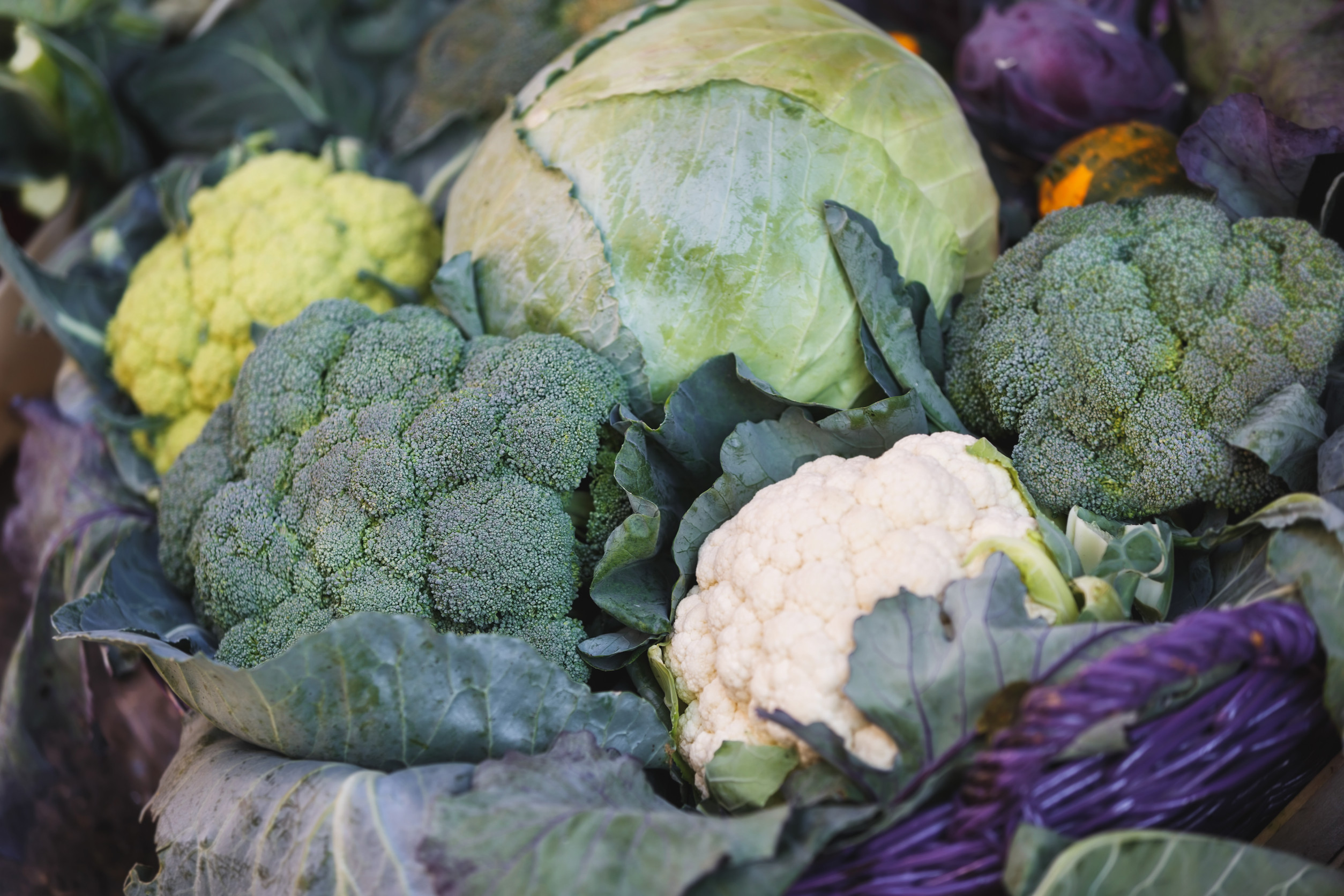
Image Source: 123rf.com
Let’s face it—talking about colon cancer doesn’t always sound fun, but a fresh study just gave us a powerful way to fight back, and it’s as simple as eating your veggies. New research reveals that certain vegetables—especially cruciferous ones—can significantly lower colon cancer risk, and even small daily servings count. That means your grocery cart could double as a shield against one of the most common cancers. We’ll break down the top vegetables to focus on and how to weave them easily into your meals. Think of this as your gut-health game plan for better cholesterol—oops, I mean better colon health.
1. Cruciferous Vegetables Slash Risk
Cruciferous vegetables like broccoli, cauliflower, kale, cabbage, and Brussels sprouts pack a serious health punch. Researchers who analyzed 17 studies involving nearly 640,000 participants found that just 40 to 60 grams of these vegetables daily—about half a cup—was tied to a 20–26% lower risk of colon cancer. These veggies contain compounds such as isothiocyanates, flavonoids, fiber, and vitamin C—all working together to reduce inflammation, deactivate carcinogens, and prevent tumor growth. Best of all? The benefits level off after that amount, so even a modest commitment pays off. Craving a health boost through vegetables? These cruciferous favorites are your best defense.
2. White-Fleshed Veggies Pack a GI-Guarding Punch
Another recent study zoomed out to look at gastrointestinal cancers as a whole—and white-fleshed vegetables emerged as a standout. Daily intake of veggies like cauliflower (yes, cruciferous overlap!), mushrooms, onions, garlic, apples, and pears was linked to a remarkable 36% lower risk of GI cancers, including the colon. Their antioxidant and anti-inflammatory effects appear to shield digestive cells from damage. Red and purple produce, like tomatoes and beets, offered up to 32% risk reduction, thanks to powerful compounds such as anthocyanins and lycopene. Adding a spectrum of colorful vegetables to your plate—not just dark greens—could deliver broad cancer-protective benefits.
3. Leafy Greens and Folate Help Lower Risk
Leafy greens are great in salads—but they’re also quietly powerful warriors against colon cancer, thanks to their folate content. A large study found that higher dietary folate—from foods like spinach, kale, and broccoli—was tied to about a 9% lower risk of colorectal cancer. Folate plays a critical role in DNA synthesis and repair, helping keep mutations in check. Pairing these greens with other vegetables helps ensure you’re getting diverse nutrients that bolster cellular defenses.
4. Allium Vegetables Could Be Protective Too
Garlic and onions, part of the allium family, may offer digestive protection beyond flavor. Though some studies are observational, they consistently point to reduced cancer risk tied to allium vegetable intake. Garlic especially contains allicin, a compound studied for its potential to inhibit tumor growth. Adding garlic and onions to meals is an easy, natural way to reinforce your vegetable strategy and boost colon health.
5. A Rainbow of Vegetables Reinforces the Defense
One-off foods only go so far. Evidence suggests that eating a variety of vegetables across colors likely delivers a layered defense—reds, purples, whites, greens, and oranges all bring distinct phytochemicals to the fight. Think beyond cruciferous staples: add carrots for beta-carotene, leafy greens for folate, and mushrooms for a white-fleshed boost. Diversity in your vegetable intake creates synergy—nutrient combinations that support gut lining, reduce inflammation, and promote healthy cell turnover.
A Practical Path to Veg-Powered Protection
You don’t need to overhaul your life. Start small: an extra half-cup of broccoli with dinner, a handful of spinach in your morning omelet, onions in your stir fry, a side of mushrooms, or carrot sticks for snacking. Think of vegetables as more than side dishes—they’re active participants in cancer prevention. Pairing this diet with other healthy habits—regular screenings, exercise, fiber-rich foods, and minimized alcohol—compounds the benefits. Even subtle shifts today can yield big dividends for colon health.
What’s your go-to vegetable for supporting gut health—broccoli, garlic, or kale? Share your favorites (and recipes) in the comments to inspire others!
